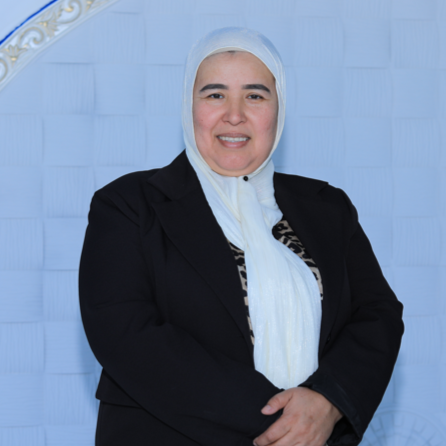Uzbekistan: Front Line Defenders Award Winner Sharifa Madrakhimova was prevented from leaving Uzbekistan to attend the FLD Award Ceremony in Dublin
Front Line Defenders expresses its grave concern that Uzbekistani woman human rights defender Sharifa (Sharifakhon) Madrakhimova, the 2025 Front Line Defenders Award Winner for Human Rights Defenders at Risk, was prevented from travelling to Dublin to attend the Award Ceremony on 22 May 2025. The woman human rights defender had her passport with a valid visa burnt and invalidated, and her new passport was delayed. Front Line Defenders considers this an act of intimidation and a violation of her right to freedom of movement, and urges the Uzbekistani authorities to ensure that Sharifa Madrakhimova can travel outside of Uzbekistan to engage with international partners and stakeholders.
Sharifa Madrakhimova is an Uzbekistani woman human rights defender, journalist and community leader from the Fergana region. As a freelance reporter, she collaborates with various media outlets in Uzbekistan. She grew up to be a respected community leader and, inspired by her talent for writing, made a name for herself through her work as an independent journalist, reporting on issues affecting her community. These issues include civil and political rights, environmental rights, accountability, and the rights of women, farmers, and people with disabilities. Sharifa Madrakhimova advocates for social change, striving to promote justice and equitable decision-making by the authorities.
On 7 May 2025, Sharifa Madrakhimova received her passport with an Irish visa stamp via DHL at her home in Kokand, Uzbekistan. However, the back cover of the passport, where the biometric chip is located, as well as several other pages were visibly burned. Front Line Defenders believes that her passport was burned on purpose. The destruction most likely took place when the parcel was passed over to a local courier service within Uzbekistan, right before the delivery. As envelope and passport were in normal condition when they were sent out from Dublin, the passport had to be removed from the parcel to inflict this kind of damage. Front Line Defenders believes it was intercepted during this last part of the delivery within Uzbekistan. On 16 May 2025, DHL reported to Front Line Defenders that they are investigating this issue.
On 8 May 2025, Sharifa Madrakhimova immediately applied for the new passport. Local authorities claimed it would take a maximum of ten working days to receive a new passport. The authorities did not allow her to pick up her new passport in the capital, Tashkent, and she was told to wait for the document to arrive to Kokand on 23 May with a special courier. On 23 May, the special courier service arrived with several travel documents, yet without Sharifa Madrakhimova’s. The local authorities did not provide any explanations regarding the status or location of her passport.
Sharifa Madrakhimova had previously experienced intimidation and harassment from supporters of the Uzbek government. In April 2024, Sharifa Madrakhimova and a fellow Uzbek woman human rights defender were attacked outside her home by a pro-government blogger and another unidentified man. She reported the attack to the police, naming the blogger as one of the perpetrators. However, law enforcement agencies concluded that no crime had been committed. Two days later, the blogger published defamatory video about her on YouTube.
Front Line Defenders urges the Uzbekistani authorities to halt its intimidation tactics against Sharifa Madrakhimova and ensure that she is not restricted from travelling outside of Uzbekistan. The organisation demands that the authorities conduct an immediate and impartial investigation into the destruction of Sharifa Madrakhimova’s passport, acknowledging the link between her human rights work and the destruction of her passport that prevented her from receiving her award. The results of this investigation must be published and those responsible held accountable. Front Line Defenders also calls upon the Uzbekistani authorities to guarantee that all human rights defenders in Uzbekistan can pursue their legitimate work, including international advocacy work, without fear of reprisal or judicial harassment.

